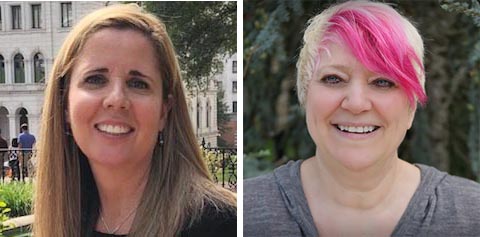SOE co-authors explore roles, challenges of cultural brokers
Spotlight on staff research in our centers

The amount of knowledge being generated by VCU School of Education faculty and staff in published research goes beyond merely enhancing the school’s reputation – it is helping to shape the future of education itself. One recent example of this is the study below, co-authored by Dr. Parthy Dinora, associate director for the Partnership for People with Disabilities, and Dana Yarbrough, assistant director of strategic initiatives at the Partnership, which looks at using cultural brokering methods to serve culturally diverse families of children with disabilities.
Summary
Parthy Dinora and Dana Yarbrough, along with their co-author Yali Pang, explore the effects of cultural brokering on helping culturally diverse families of children with disabilities to navigate the service system. Cultural brokering is a framework for conflict and problem resolution; cultural brokers are often members of the community. The researchers used interviews with cultural brokers at the Partnership who are parents of children with disabilities who interact directly with families in a statewide family support program, as well as interviews with national experts in cultural brokering models that support people with disabilities. In the interviews, cultural brokers and experts spoke about their experiences working with culturally diverse families to paint a picture of the roles of cultural brokers in the lives of the families with whom they work.
The authors found that cultural brokers believe their primary roles are as liaison and educator for families, whereas experts believe that high quality brokers should also act as advocates and mediators between the service system and the families. Cultural brokers face a variety of challenges when serving culturally diverse families, which include culture and language barriers, difficulty building rapport, and multiple layers of expectations, such as effective communication and successfully directing families to the appropriate resources. Effective cultural brokers familiarize themselves with the culture of the particular communities they support and do not compare their own experiences with those of the people they serve. The authors also found discrepancies regarding added responsibilities for cultural brokers that go beyond the individual level and stretch to a larger scale, such as organizational change and policy work. As diverse populations continue to grow in the U.S., the need for culturally sensitive support will increase and the importance of understanding responsibilities in this role will magnify.
Citation